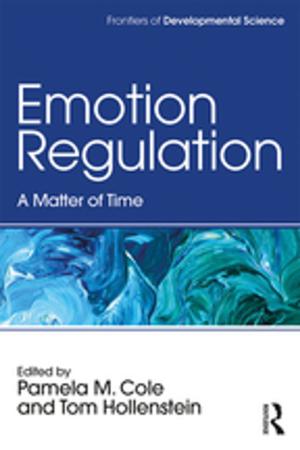| Author: | Marc Slors | ISBN: | 9781351150705 |
| Publisher: | Taylor and Francis | Publication: | November 28, 2017 |
| Imprint: | Routledge | Language: | English |
| Author: | Marc Slors |
| ISBN: | 9781351150705 |
| Publisher: | Taylor and Francis |
| Publication: | November 28, 2017 |
| Imprint: | Routledge |
| Language: | English |
Practical reasoning in contemporary Western societies is characterised by an unprecedented degree of idiosyncrasy and demands of personal authenticity. This has resulted from the decline of traditional moral authorities, the rise of individualistic lifestyles, increasing multiculturalism and rapid technological advance. These developments have given rise to reflection on the notion of 'reasons of one's own', an examination of the intelligibility of reasons that are closely connected to a particular agent, and recognised as such by others, although not shared by them. Problems addressed by the contributors include; How to account for the cognitive overtones in moral and motivational language given the apparent 'agent-relativity' of reasons. How to retain the 'agent-relativity' of reasons for action given that they require articulation through a language shared by the community, and how to account for the practical rationality required for co-operation between persons in view of the idiosyncrasy of a person's motivating reasons. In dealing with these issues this book presents a range of investigative essays on the concept of reasons of one's own by leading authors from all relevant philosophical areas of expertise.
Practical reasoning in contemporary Western societies is characterised by an unprecedented degree of idiosyncrasy and demands of personal authenticity. This has resulted from the decline of traditional moral authorities, the rise of individualistic lifestyles, increasing multiculturalism and rapid technological advance. These developments have given rise to reflection on the notion of 'reasons of one's own', an examination of the intelligibility of reasons that are closely connected to a particular agent, and recognised as such by others, although not shared by them. Problems addressed by the contributors include; How to account for the cognitive overtones in moral and motivational language given the apparent 'agent-relativity' of reasons. How to retain the 'agent-relativity' of reasons for action given that they require articulation through a language shared by the community, and how to account for the practical rationality required for co-operation between persons in view of the idiosyncrasy of a person's motivating reasons. In dealing with these issues this book presents a range of investigative essays on the concept of reasons of one's own by leading authors from all relevant philosophical areas of expertise.















